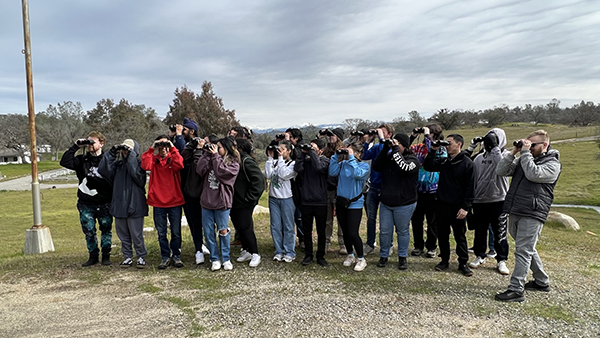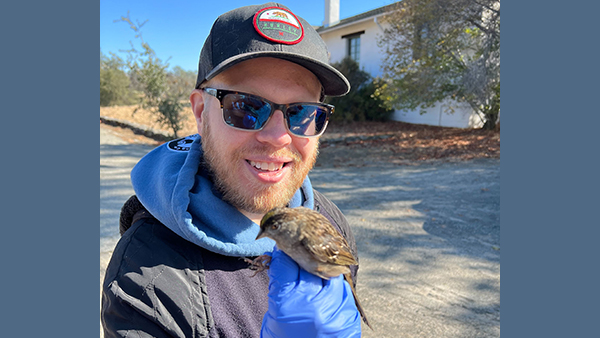|
We hope you enjoy this series where we meet and get to know employees from across campus. Would you like to be featured? Contact us at campusnews@csufresno.edu.
Name: Joel Slade
Title: Assistant Professor
Department: Biology
Academic Degree(s):
- B.S. in marine biology and oceanography, Dalhousie University
- M.S. in biology, Saint Mary's University
- Ph.D. in biology, University of Western Ontario
How long have you worked at Fresno State and which offices have you worked in?
I have worked here since the fall of 2019, in the Biology Department.
Are you a Valley native? If not, what brought you to the area and to Fresno State?
I am not a Valley native. What brought me here was the proximity to all the amazing ecosystems in the state of California. Also, when I interviewed here, I really enjoyed the diversity-focused mission of the university, which was a main reason I chose to come to this campus.
Do you have a campus mentor or someone who has helped you in your career?
Yes, but this list is not exhaustive as many members of my department and others have been very supportive of my endeavors and career. Ones that immediately come to mind are Dr. Tricia Van Laar from CSU Stanislaus, Dr. Karine Gousset, Dr. Katherine Waselkov, Dr. Alejandro Calderon-Urrea and Dr. Larry Riley.
Staff in my department who I could not survive without are Mark Schreiber, Lindasue Garner, Maria Rochin and Wayne Parent. Outside of my department, Gayle Sherwood at the Office of Research and Sponsored Programs has been incredibly supportive and helpful.
Tell us about your department and what people may not know about it.
My department serves roughly 1,100 students. Also, the research is incredibly diverse, such as, but not limited to, research on science teaching, cancer biology, cell biology, climate change biology, plant genetics, and avian ecological immunology and evolutionary ecology.
What is your most notable accomplishment in your field, and why was it important?
Uncovering that songbirds may signal the genotype of key immune genes, such as the major histocompatibility complex, through olfactory cues. Mammals can often detect these genes through olfactory cues, but songbirds were thought to be unable to detect scent, especially scent that signals these genes.
What are you most passionate about in your field and why?
Discovering how humans are changing the evolutionary trajectories of the avian immune system. Recent outbreaks in the potentially zoonotic pathogen, avian influenza, is one of the reasons why it is so important for us to study how birds are, or not, adapting to our activities, such as urbanization and agriculture.
What is a memorable moment you had at your job?
Being awarded a New Faculty Enhancement Grant from the National Science Foundation this year.
What is a memorable moment you had in class?
No specific day but taking my Ecology and Evolution of Birds class to the field to experience authentic bird biology research is always memorable. The students are fully engaged and excited to see the birds up close.
What is your teaching style?
I try to incorporate active learning as much as possible. If able, I try to incorporate experiential learning by getting students involved in research.
What is your favorite quote or saying?
“There is grandeur in this view of life, with its several powers, having been originally breathed into a few forms or into one; and that, whilst this planet has gone cycling on according to the fixed law of gravity, from so simple a beginning endless forms most beautiful and most wonderful have been, and are being, evolved.” — Charles Darwin, On the Origin of Species, 1859
What is the most interesting or unusual job you've ever had?
I was the curator for my hometown railway museum for two summers during my late teens.
What do you like to do for fun in your spare time?
Video games and board games with friends.
What is something interesting about you that most people don’t know?
Even though I study birds, my main animal-related hobby is breeding and caring for my eight different species of poisonous dart frogs. Don’t worry, they are not toxic in captivity.
Is there something else you would like to share that was not asked?
I always enjoy getting pictures of birds that people want identified. Feel free to send them my way.
|




